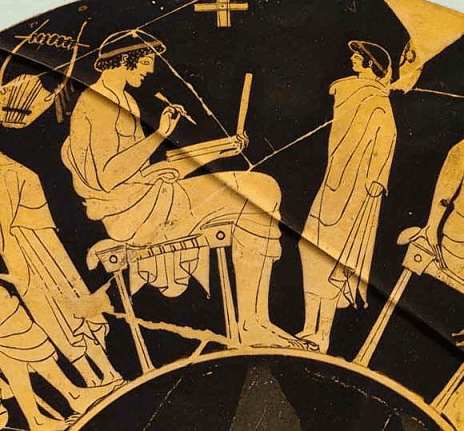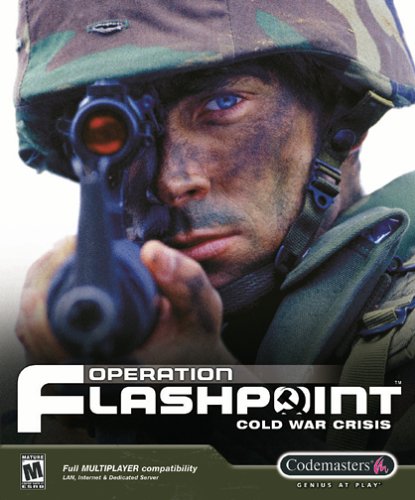There is already an article on here about this. Quite simply I believe that education will be the biggest area of video gaming. By education I don’t mean the dire low budget software that appeared on the BBC computer, whose progeny have been on the periphery of our industry ever since. No, I mean polished, big budget titles that educate whilst they entertain. And not just in school. Educational gaming will work in any area where people need to gain knowledge or skills. Vocational training, the military, self improvement and even PhD level studies and above.
Gaming has a lot of advantages as an educational method. Information can be presented as text, sound or graphically and the student can interact with that information in many creative ways. They also, via the internet, have access to all the world’s knowledge, which they can instantly use for research. Learning can be done in an exploratory, non linear way and in co-operation with other, connected, students. The advantages are immense. This is much closer to the way man evolved to be educated and must result in a far more efficient educational process. At the Natural History Museum in New York there is a diorama on primitive tribes and play is combined with education as the same subject.
Of course gaming is already educating people, almost by accident. Game players have better hand/eye coordination, better problem solving skills and better social skills. In addition military games often contain a huge amount of detailed historic and geographic knowledge. And a grasp of economics can be gained by playing God games and MMORPGs. But all this is a by product of being entertained.
As in many things in this industry, it is Nintendo who are leading where the rest of the industry will follow. Brain Age on DS has become an immense global hit. And it works suprisingly well. They are following it up with Eye Training and Math Play. Both of which will be global best sellers. And if you want to improve your body there is Wii Fit. On the non Nintendo front it was nice to see the announcement of a 17th century MMO based on the works of Shakespeare. It is a pity it is so low budget because this sort of concept is exactly what will work.
One small anecdote here is that the Codemasters military simulation game, Operation Flashpoint, was adopted for use by the US Marines. They use it as a fairly sophisticated combat trainer.
Eventually games will replace teachers as we know them. There will be no need to stand at the front and spout facts. Instead teaching will consist of guiding people into and through interactive worlds. And there will be no need whatsoever for schools as we now know them. Education will happen wherever the student is. This means that, at long last, students in the third world can have the same access to education as students in the first world.
Once the bandwagon starts there will be created an immense range and depth of materials. This will have the biggest impact on education since the invention of the printing press. As a result future generations will be vastly better educated than we are. And they will enjoy that education.




Permalink
It’s a tantilising prospect, isn’t it? I hate the kids, they get all the good stuff.
That said, the biggest hurdle is the way game business is set up, so as to make real edutainment almost impossible. One reason the Shakespeare MMO is so low-budget is because it relied on a grant. Who is going to pay for these educational games? How is the business going to make a profit? Until these questions can be answered I think there’ll be a bit of a reluctance to forego our mindless, genocidal entertainment. I think the biggest market is, at the moment, still the one that likes to switch off and relax with games rather than be educated (in the traditional sense of the word). At the moment “digital education” is stuck in the 90s “multimedia” area of technology.
Interesting to see the announced “Video Game Training DS”. Is that educational?
Permalink
Well put. There’s definitely a market for both teaching and entertaining, as long as it’s dressed up as entertainment first. Civilization IV is entertainment, but a quick look into the Civilipedia (the in-game help system) reveals historic lessons on the use of Crossbows, the importance and dangers of river deltas and how different forms of government have both good and bad consequences.
I’m not a teacher, but if I was, I’d spend my time setting up historic scenarios in Civilization, have my students play them against/with each other and debrief them afterwards while educating them on what “really happened”.
Strategy games teach Clausewitz and Sun Tzu without even trying. While those lessons are most applicable in direct confrontation, the principle of force conservation, the principle of force concentration etc. are applicable to any resource constrained situation, life included.
Permalink
” Imagine a public library of the near future. There will be long rows of boxes or pillars, properly classified and indexed, of course. At each box a push button and before each box a seat. Suppose you wish to “read up” on a certain episode in Napoleon’s life. Instead of consulting all the authorities, wading laboriously through a host of books, and ending bewildered, without a clear idea of exactly what did happen, and confused at every point by conflicting opinions about what did happen, you will merely seat yourself at a properly adjusted window, in a scientifically prepared room, press the button and actually see what happened.
There will be no opinions expressed. You will merely be present at the making of history. All the work of writing, revising, collating, and reproducing will have been carefully attended to by a corps of recognized experts, and you will have received a vivid and complete expression.”
That’s what D.W. Griffith said about the potential of film as a teaching medium, and he was way off the mark. Having shown both documentaries and historical dramas to students, both often pale beside evocative primary documents.
Like films, say Griffith’s “Birth of a Nation”, interactive worlds will bear the imprint of their creator, making a teacher essential as more than an interactive guide. It’s tempting to think that you can just program in the debates, but you can’t without depriving students of the very critical skills of working through the debates about evidence.
Games can and should be an important part of teaching, but the accidental lessons you cite, Bruce, are the crucial ones that sometimes need undoing. Take Civ, where the accidental lesson is that progress is inevitable if you just wait long enough. Or The Sims, where the accidental lesson is that acquisition is the key to happiness. Or Spore, which is about the gamer as intelligent designer.
Permalink
The advantage of gaming is that it is connected, via the internet, to the sum of all knowledge. So there is no problem drilling down to primary documents. Or films. Or whatever already exists.
Already the internet contains a wealth of knowledge that exists in no other form. Wikipedia is still at it’s beginning but already it is a valuable tool. All this can be incorporated into gaming.